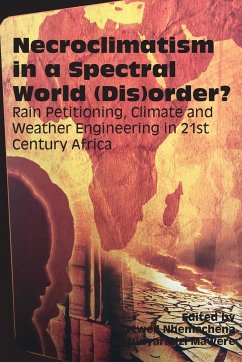
Grid-locked African Economic Sovereignty
Decolonising the Neo-Imperial Socio-Economic and Legal Force-fields in the 21st Century
Herausgeber: Warikandwa, Tapiwa Victor; Mpofu, Nkosinothando; Nhemachena, Artwell
Versandkostenfrei!
Versandfertig in 1-2 Wochen
65,99 €
inkl. MwSt.

PAYBACK Punkte
33 °P sammeln!
The emergent so-called "Fourth Industrial Revolution" is regarded by some as a panacea for bringing about development to Africans. This book dismisses this flawed reasoning. Surfacing how "investors" are actually looting and plundering Africa; how the industrial internet of things, the gig economies, digital economies and cryptocurrencies breach African political and economic sovereignty, the book pioneers what can be called anticipatory economics - which anticipate the future of economies. It is argued that the future of Africans does not necessarily require degrowth, postgrowth, postdevelopm...
The emergent so-called "Fourth Industrial Revolution" is regarded by some as a panacea for bringing about development to Africans. This book dismisses this flawed reasoning. Surfacing how "investors" are actually looting and plundering Africa; how the industrial internet of things, the gig economies, digital economies and cryptocurrencies breach African political and economic sovereignty, the book pioneers what can be called anticipatory economics - which anticipate the future of economies. It is argued that the future of Africans does not necessarily require degrowth, postgrowth, postdevelopment, postcapitalism or sharing/solidarity economies: it requires attention to age-old questions about African ownership and control of their resources. Investors have to invest in ensuring that Africans own and control their resources. Further, it is pointed out that the historical imperial structural creation of forced labour is increasingly morphing into what we call the structural creation of forced leisure which is no less lethal for Africans. Because both the structural creation of forced labour and the structural creation of forced leisure are undergirded by transnational neo-imperial plunder, theft, robbery, looting and dispossession of Africans, this book goes beyond the simplistic arguments that Euro-America developed due to the industrial revolutions.














